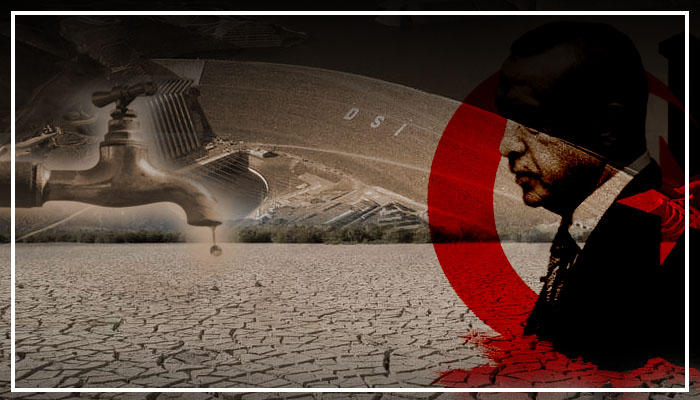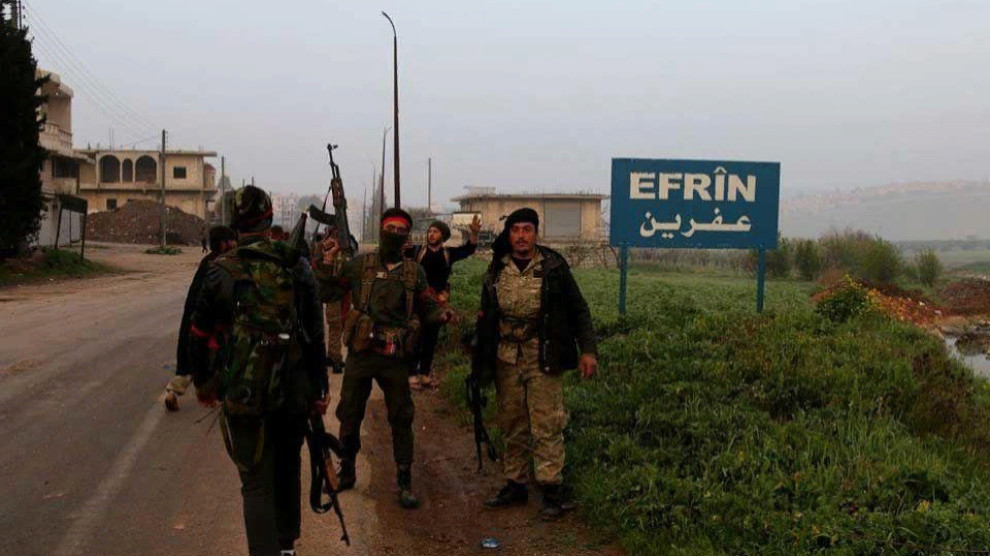The Turkish state hostility towards the Syrian people is no longer hidden. Some say it revenges the Syrians who defeated Ottoman Empire, nearly a hundred years ago after a rule that lasted hundreds of years from which the region reaped nothing but ignorance and backwardness.
Their intervention began with the Syrian uprising against President Bashar al-Assad in March of 2011, which was the step that formed the basis for its intervention on a large scale.
The peaceful uprising quickly turned into an armed conflict, in which Turkey played key role in supporting the mercenaries against the government forces.
The Turkish-Syrian border was also wide open to thousands of foreign mercenaries coming from far and wide to join ISIS, which Turkey supported in all aspects.
All of this was within the framework of a plan, enabled it gradually to occupy several parts of the Syrian territories, starting from Jarablus, Afrin and Girê Spî (Tal Abyad) and Serêkaniyê (Ras al-Ain).
The Turkish attacks on the region are still continuing, for controlling more Syrian areas, all of this with explicit international complicity.
A dirty Turkish war is directed against NE Syria
Turkey seeks to acquiesce in the Syrian people under Turkish domination, and it has effectively failed in the NE Syria, so the shelling and the attacks are under way from time to time.
Since Turkey operation yielded no results, it resorts to a dirty method in its war against the region by using water weapons.
Cutting off the water from Al-Hasakah, which is inhabited by about one million people, and reducing the flow level of the Euphrates River to the Syrian lands, was the new Turkish tactic that targeted the region’s components directly.
Cutting water off civilians is a war crime according to international law
Since Turkey occupied the cities of Serêkaniyê and Girê Spî ( Tal Abyad ) during the attack that was launched despite the agreements between Russia, America and Turkey – on October 9, 2019, the Turkish occupation has cut off water 8 times from Al-Hasakah that depend on the Alouk station near the occupied Serêkaniyê.
The cutting off of water is a crime against humanity according to international laws, and causes a special humanitarian catastrophe as the cutting coincides with the spread of the Coronavirus pandemic in the world, including the northeast Syria.
Turkey cuts off water from an area in which a million people live and hosts the largest displacement camps in northeast Syria, “Washokani, Areesheh and Al Hol”.
Turkey’s mercenaries previously weaponized water in the Syrian crisis, against Damascus and Aleppo, and today they use it against the people of Al-Hasakah and its countryside.
Observers believe that cutting off the water of the Alouk station is to blackmail the Autonomous Administration to incite people against this administration.
Given that water is a social wealth and everyone has the right to access it, and the necessity not to use it in wars, the Geneva Convention considers the issue of cutting water comes to the level of a “war crime and genocide” and the perpetrators must be held accountable.
According to the Rome Statute, which established the International Criminal Court, the violations committed by Turkey and its mercenaries and their unlawful and irresponsible acts are contradictory even as an occupying power, which exposes it to international legal accountability.
The fate of the Euphrates is in Turkey’s hands
Over the past few years, Turkey has reduced the level of the Euphrates River flowing into the Syrian territories several times, which has negatively affected the region in many ways.
The river is the lifeblood of millions of Syrians in the northern Euphrates region and in other areas such as Raqqa and Deir ez-Zor, in addition to supplying the second largest city in the country, Aleppo, with drinking water.
The NE Syria regions feed three dams on the Euphrates River in the Syrian territory, the Tishreen, southeast of Manbij, the Euphrates, the largest dam near the city of Al-Tabqa, with a 14 billion cubic meters of water, and the Al-Hurriyah Dam near Al-Raqqa.
Six Turkish dams trap the water of the Euphrates River before it flows into Syria, including the Ataturk Dam, the second largest dam in the Middle East, which is 48 billion cubic meters of water.
As it did in the summer of 2017, Turkey reduced the Euphrates water level, bringing the water supply to Syria to less than 200 cubic meters per second.
Turkey cut off was carried for 3 consecutive months between May and August during the past 2020 year, which provoked local and regional reactions about Syria and Iraq’s share of water, in an inconsistent manner with the agreement that brings together the Syrian and Turkish governments on sharing Euphrates River.
The agreement of 1987 between Turkey and Syria, stipulated that the Syrian territories would obtain 500 cubic meters of water per second, equivalent to 2,500 barrels.
The Dams Administration in NE Syria stated in August of last year that the lakes had lost approximately 3 billion cubic meters of water, out of the total water storage in the country “14 billion” within 3 months, equivalent to 33 million cubic meters of water on a daily basis.
water shortage threatens thousands of agricultural hectares in the Euphrates Basin, as the Euphrates irrigate nearly 400 thousand hectares of land, the most important of which is wheat in addition to the orchards and fruit trees spread along the banks of the river in the Euphrates Basin in northeastern Syria, according to a number of agricultural committees and authorities in regions.
This matter also casts a shadow over the situation of hundreds of fishermen along the eastern and western banks of the Euphrates. Hundreds of rural fishermen suffer from huge quantities of dead fish during the contraction of the riverbed, the only source of livelihood, and consequently, unemployment in light of difficult living conditions, and the decrease in the water level damages the fish wealth.
In addition, the shortage of drinking water in a number of Syrian regions is one of the problems arising from Turkey’s reduction of the country’s share of water, which is a lifeline for millions of Syrians.
In early December of 2020, Turkey returned to cut off the Euphrates water for a whole week, which directly affected the generation of electricity for dozens of Syrian cities. (Jumaah Muhammad / Kobane )


